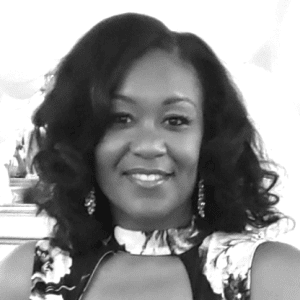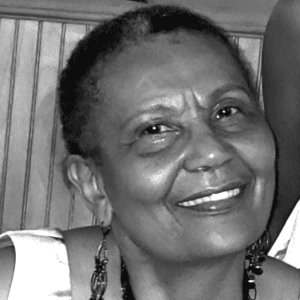Childcare Assistance and Resources for Nurses
 Credit: Getty Images
Credit: Getty ImagesTamara Pierre-Thompson, FNP-BC, remembers her mom working as a nurse’s assistant and getting her licensed practical nurse license. It wasn’t until Pierre-Thompson was in high school that her mom completed her degree and became a registered nurse (RN).
“I am so proud of my mother, especially since she is an immigrant who came to this country with nothing,” Pierre-Thompson says.
Pierre-Thompson’s mom, Jocelyne Pierre, RN, immigrated from Haiti to the United States over 50 years ago. Along with her sister-in-law, Herlerie Cassagnol, BSN, RN, they were looking for a better quality of life — and what better way to achieve it than through nursing.
Multigenerational nursing is a common tradition seen in many nursing families. Children follow in the footsteps of their parents, guardians, and extended family members to pursue this passion-driven career.
But the road to a nursing degree is tough. It is especially difficult when you come from another country, speak another language, and are surrounded by a different culture.
It is through sacrifice, hard work, and perseverance that Pierre and Cassagnol completed their education, starting the beginning of a multigenerational nursing tradition. Pierre expected nothing different from her daughter.
From Haiti to the U.S.: The Beginning of a Nursing Tradition
Cassagnol was the first to become a nurse in her family. Like Pierre and many others, she became a nurse because she likes helping people.
“I like taking care of them and making them feel better,” Cassagnol says.
When Cassagnol came to the U.S., she faced challenges due to a language barrier, but her experience as a nurse in Haiti prepared her for her new nursing job.
In Haiti, Cassagnol describes her second year as a nursing student having many responsibilities caring for patients. As a third-year student, she worked closely with doctors and developed skills like putting in sutures, feeding tubes, and intravenous lines (IVs).
“As long as you’re interested, the doctors will let you help them,” she recalls.
When she started working in the U.S., Cassagnol was surprised by the hierarchy between nurses and doctors. Nurses now needed to ask permission to do certain things. She was able to adapt, but It wasn’t until years later that nurses were allowed to put in IVs.
As nurses from Haiti, Pierre and Cassagnol rarely faced discrimination. They both describe their experiences as comfortable, even welcoming.
“Where I worked, there were a lot of foreign nurses, and the hospital welcomed us. Many of us were from the Philippines and West Indies,” Cassagnol says.
It is a fact that representation matters in healthcare. When providers look like their patients, studies show this improves patient outcomes. But there are benefits to the provider when their patient looks like them as well.
Pierre worked in a community hospital where a lot of her patients were minorities, “so I felt very comfortable,” she says.
Pierre and Cassagnol also believe their experience as nurses was positive because they both knew their willingness to learn and help made them stand out from other nurses.
“Don’t be selfish,” Pierre says. “You have to help others. If you see someone who needs it, go and help them.”
As Fate Would Have It
Haitian parents typically have one goal in mind for their children: to get an education. But it’s not just any education. They tend to favor careers in the medical field, law, or engineering.
“My mother was OK with any decision I made, but she really wanted me to become a doctor. I think just to be able to say, ‘My daughter is a doctor,'” Pierre-Thompson laughs.
Pierre-Thompson thought she was going to be a doctor, too. As a young child, she referred to herself as Dr. Tamara Pierre, and signed “MD,” almost instinctively, after her name. But as fate would have it, Pierre-Thompson became a nurse just like her mother, aunt, and many other members of her family.
Although she had many nurses in her family, Pierre-Thompson first began to rethink her decision to go to medical school when she was in a medical science program in her junior year. The nursing department contacted her because she did very well on the entrance exam, offering her a spot in the nursing program.
“I spoke to mother, and she told me to go for it,” she says.
In 1997, Pierre-Thompson got her nursing degree but didn’t stop there. In 2001, she became a nurse practitioner and now plans to go back to get her doctorate, “so I can officially sign Dr. Tamara Pierre.”
A Shared Love for Nursing
Throughout the years, Pierre and Cassagnol developed a love for nursing, both describing “compassion” as the key to being a great nurse.
“You have to put yourself in your patient’s shoes to really understand what they are going through,” Pierre says. “I like to comfort the sick, and people need someone to understand them and talk to their family members.”
Pierre, now retired, also became a nurse because, for as long as she can remember, she has loved helping people. After completing her RN, she first worked on a medical-surgical floor for five years before transferring to the intensive care unit (ICU).
“You have to put yourself in your patient’s shoes to really understand what they are going through,” Pierre says.
It was in the chaos and urgency of the ICU where she thrived, and she stayed there for the remainder of her career.
Pierre has had to start many codes as a nurse, giving patients life-saving interventions until the doctor arrives to take over.
Patients in the ICU are very sick. The intense environment often reminded Pierre that these patients needed someone to advocate for them and their families. They needed her, and she was there for them.
Passing Down a Nursing Tradition
Pierre and Cassagnol had long and successful careers as nurses, but they didn’t encourage their children to go into nursing. Pierre knew her daughter was the type of person who “knew what she wanted to do.”
Pierre-Thompson’s daughter is in college and plans to be a physical therapist. If she were to pursue nursing, she would be the third generation in her family to do so.
“I can see her being a great nurse, but I don’t push her in any way towards it … yet,” Pierre-Thompson says.
While Pierre-Thompson did follow in her mother’s nursing footsteps, not all families carry on the nursing tradition. Cassagnol refrained from encouraging her children to become nurses due to lack of pay. She remembers getting paid $148 a week as a nurse.
“Back then, they weren’t paying nurses like they are paying them today,” she says.
It took a long time for the nursing salary to be what it is today. Some nurses may argue it still isn’t enough.
“Both my children are in law,” Cassagnol says. “I am happy with their decision. I love nursing, but I cannot choose for them.”
Advice From Experienced Nurses to New Nurses
Nursing today is very different from what it was 30 years ago. The pandemic only highlighted the realities of the nursing profession:
- Nurses experience racism.
- They battle burnout and nurses’ compassion fatigue.
- The imbalanced nurse-to-patient ratio compromises care.
- Nurses are leaving the profession in droves.
Cassagnol is worried about the nursing shortage, too.
“We need nurses, a lot of them. People are getting older,” she says. “I will need someone to take care of me.”
Despite this fact, Cassagnol does believe that nursing isn’t for everyone. If it’s not in your heart, and you are doing it just for the money: “Don’t do it,” she advises. Pierre and Pierre-Thompson echo this, saying nursing is hard and not for the faint of heart.
“You have to know yourself and ask yourself if you really want to become a nurse,” Pierre says.
Pierre-Thompson believes you have to love being a nurse to be a great nurse. You also have to want to care for patients as if they are your own mother or child.
Pierre is especially proud of her daughter, whom she describes as working with her heart and soul. Pierre advises new nurses to have patience and compassion. They should always advocate for the patients and their families.
Although nursing is changing every day, one thing has stayed the same: the need for human connection. Nursing is a healing profession, a mix of art and science, that is a calling for some.
Pierre, Cassagnol, and Pierre-Thompson, although their paths to nursing differ, can’t see themselves doing anything differently.
“If I could do it all over again, I would choose nursing,” Cassagnol says.
Meet Our Contributors

Tamara Pierre-Thompson has been a nurse and nurse practitioner for over 20 years. She has a background in pediatric emergency care, adolescent health, and primary care medicine. Her passion is ensuring all of her patients are educated in all aspects of their health to establish lifetime healthy habits. She is currently working in primary care and testing and tracing for COVID-19.

Jocelyne Pierre has been a nurse for over 30 years. She has a background in medical-surgical and critical care nursing, specializing in cardiac care. Her passion is helping people, which is the reason she became a nurse after migrating to the United States from Haiti.

Herlerie Cassagnol has been a nurse for over 50 years. Her career started in her birth country of Haiti. She has a background in labor and delivery and medical-surgical nursing. She ended her career in outpatient health services. Her passion is nursing.